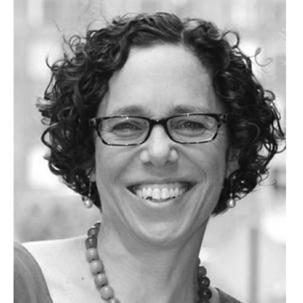Ingrid Gould Ellen
Thanks to Ingrid Gould Ellen for leading this week’s brown bag discussion.
There is a large body of work on whether neighborhoods matter to life outcomes but much less discussion about how they matter - the mechanisms involved. Ellen’s research examines the impact of neighborhood violence and crime levels.
Using data from the NYC Department of Education and the NYPD, Ellen designed a study to hone in on whether neighborhood violence affects childrens’ academic performance. In order to parse out the impact of violence, the study compared test scores of two groups of students. One group consisted of students who were exposed to a violent crime in the 7 days leading up to an exam. Another group consisted of students with comparable backgrounds who were exposed to a violent crime in the 7 days after an exam.
The study, which focused on 3rd-8th grade NYC public school students, found that acute exposure to localized violent crime decreases standardized test scores in English and language arts for elementary school students. Ellen hypothesizes that effects are seen in reading but not in math because reading requires a greater level of focus.
Ellen’s work has also examined whether the presence of foreclosures can destabilize a neighborhood and lead to higher levels of crime levels. For each additional foreclosure in a neighborhood, Ellen finds an approximately 1% increase in crime. The results suggest that the effect on crime begins in the time between the foreclosure notice and when the home is seized by the bank. In fact, bank take over of foreclosed houses is not correlated with higher crime at all. The neighborhood effects of foreclosure are larger the longer the house is in the foreclosure process, since it is the time when the property is in “limbo” that has the larget impact on crime. As such, legal procedures that extend the amount of time in which a foreclosed house is in limbo may inadvertently lead to higher levels of crime.
Speakers

Paulette Goddard Professor of Urban Policy and Planning / New York University
Ingrid Gould Ellen, the Paulette Goddard Professor of Urban Policy and Planning, is Director of the Urban Planning Program at NYU Wagner and Director of the Furman Center for Real Estate and Urban Policy. She joined the NYU Wagner faculty in the fall of 1997 and presently teaches courses in microeconomics, urban economics, and urban policy. Her research interests center on urban social and economic policy.
She is author of Sharing America's Neighborhoods: The Prospects for Stable Racial Integration (Harvard University Press, 2000) and has written numerous journal articles and book chapters related to housing policy, community development, and school and neighborhood segregation. Before coming to NYU, Professor Ellen held visiting positions at the Urban Institute and the Brookings Institution. She attended Harvard University, where she received a bachelor's degree in applied mathematics, an M.P.P., and a Ph.D. in public policy.
Please fill out the information below to receive our e-newsletter(s).
*Indicates required.
